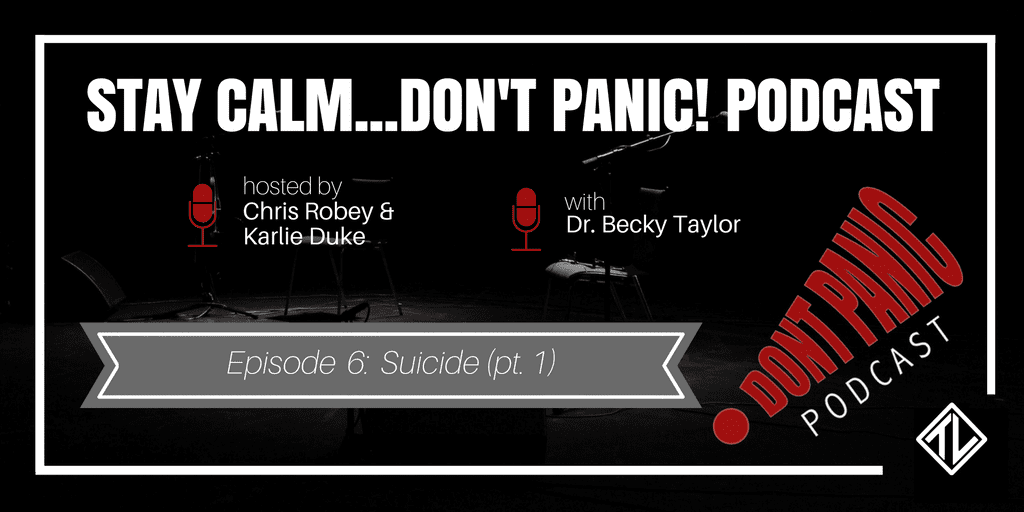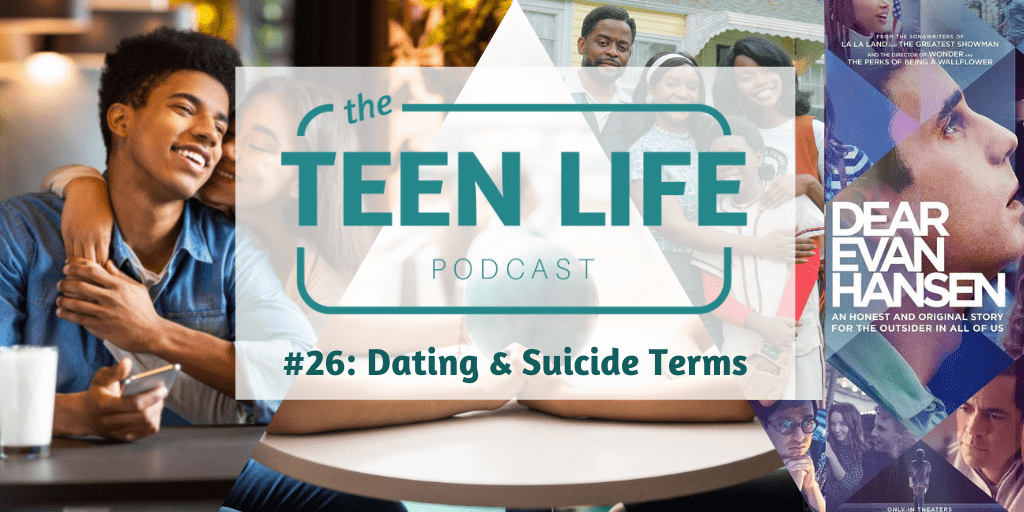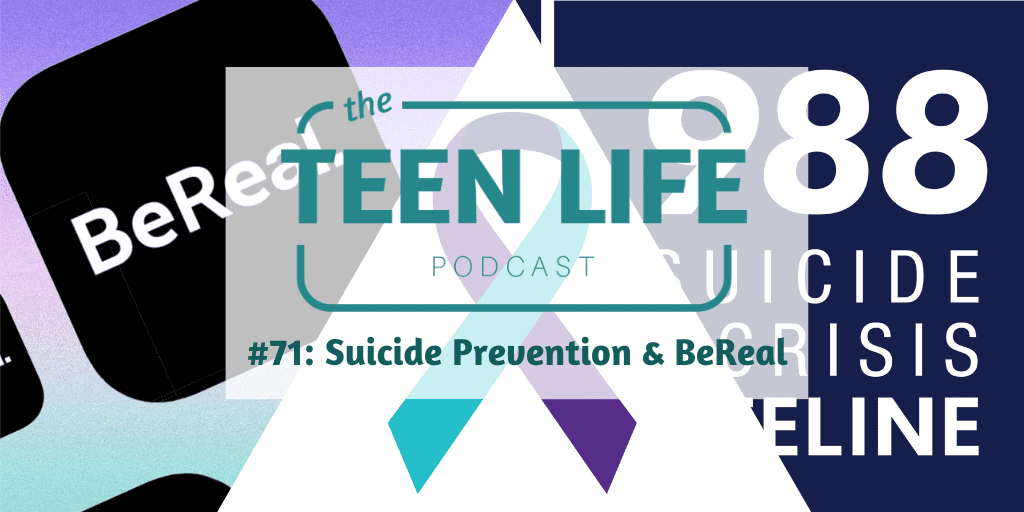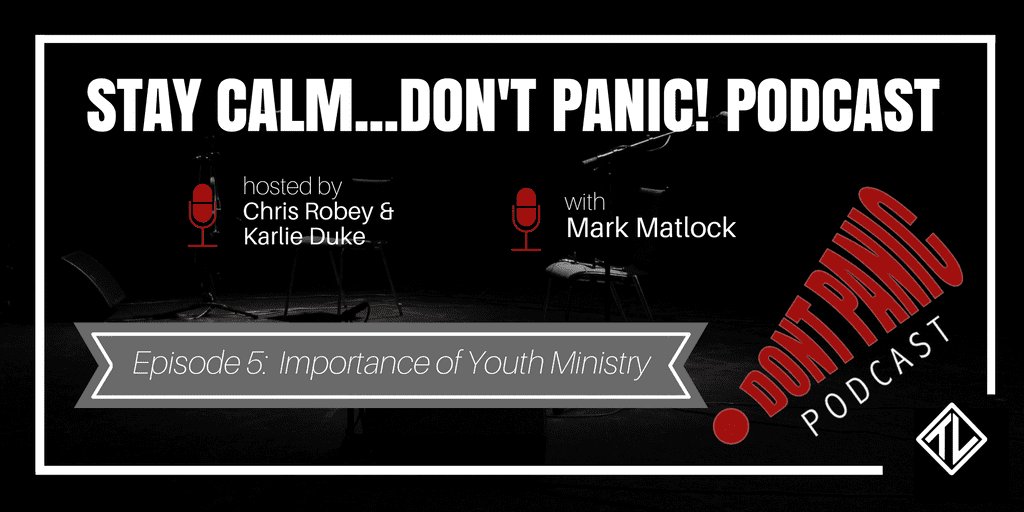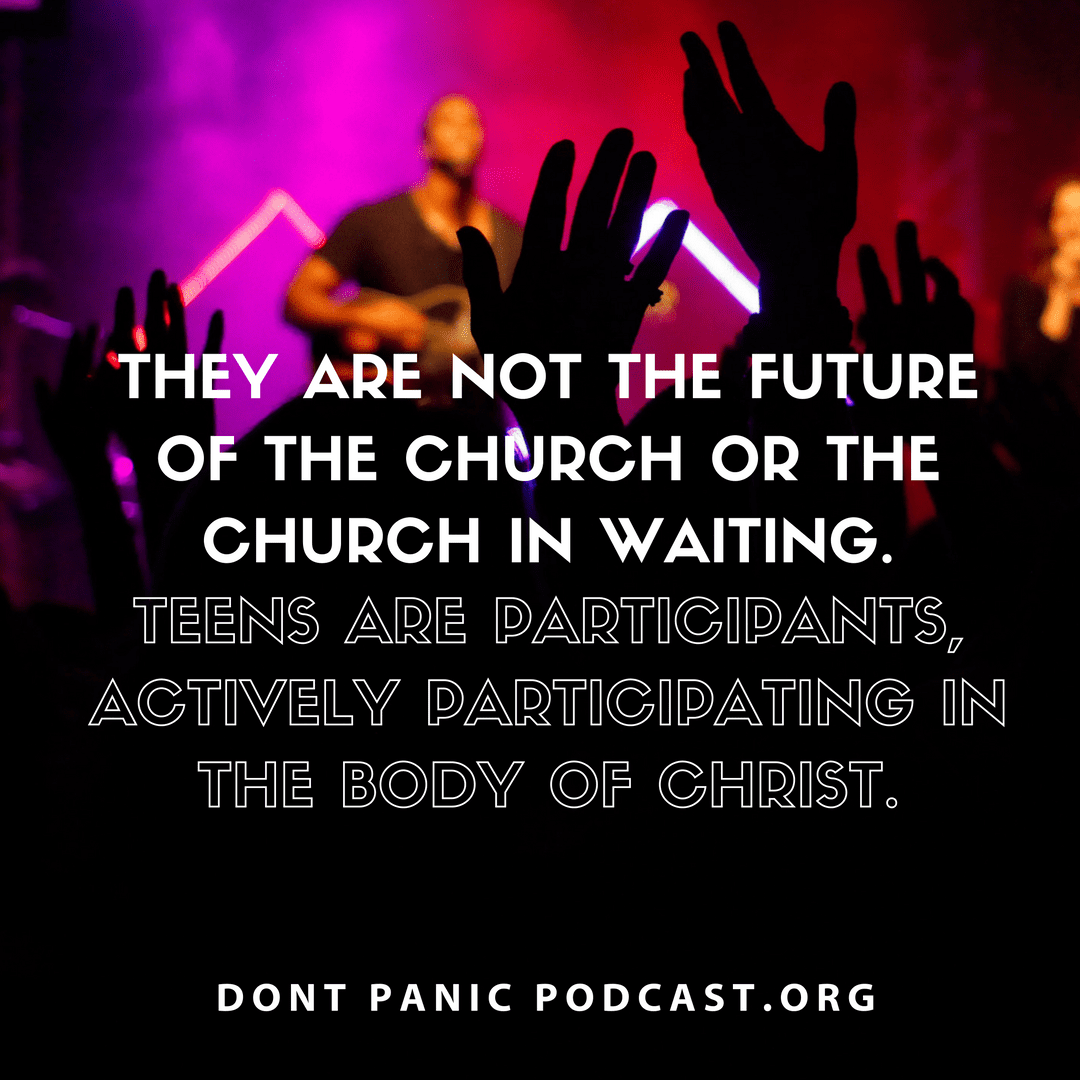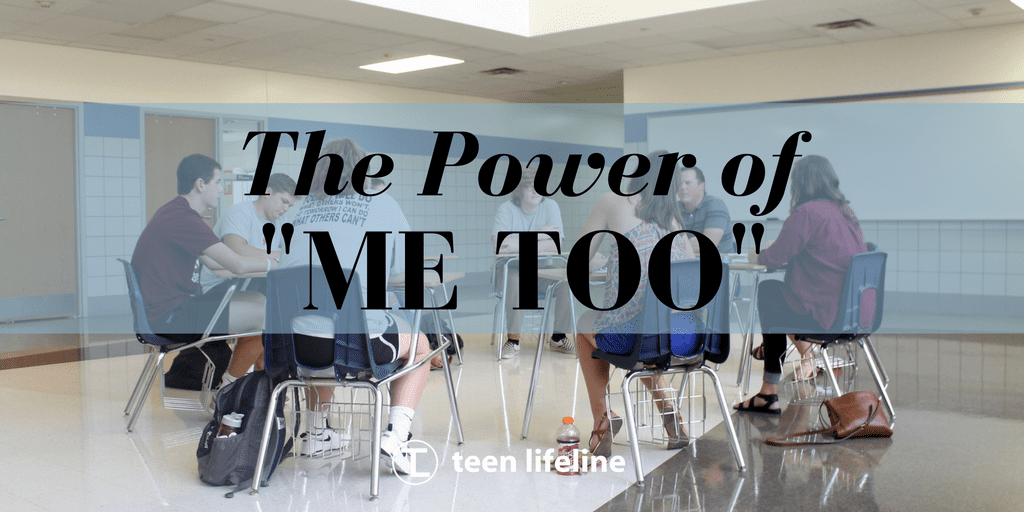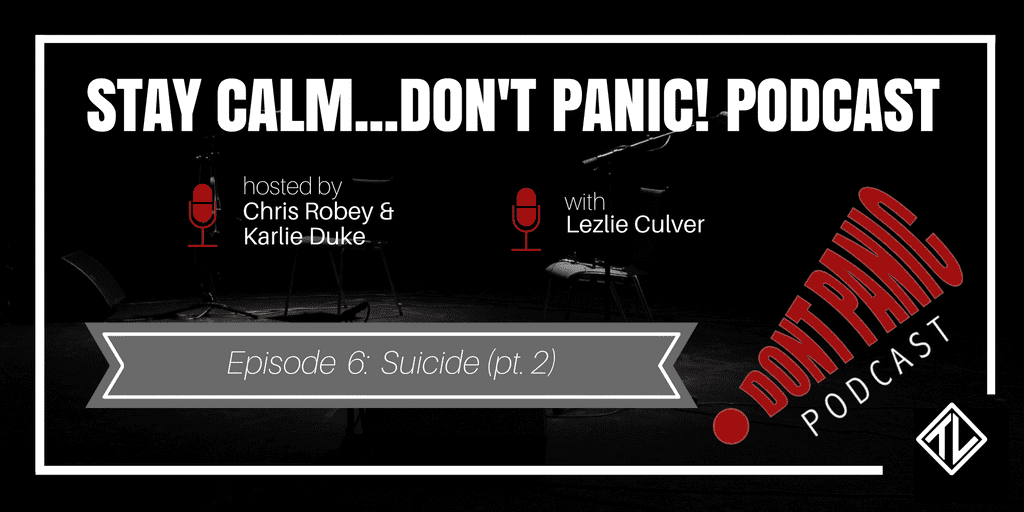
Suicide (Pt. 2) with Lezlie Culver
Podcast: Play in new window | Download
What do we do when someone has attempted or died by suicide?
In part two of our conversation about suicide, Chris and Karlie are joined by Lezlie Culver to talk about “postvention.” Through personal experience and her work with families who have lost a loved one to suicide, Lezlie discusses how we can support teenagers who have attempted suicide and families who are affected by suicide.
Don’t be a silo. You can’t handle it by yourself, especially with suicide.
In this episode, you’ll find out…
- The prevalence of suicide among teenagers.
- Terms that are appropriate and healthy to use when talking about suicide.
- How to talk to a teenager who has attempted suicide.
- The effect of suicide on the family.
- Ways we can support the survivors of suicide.
Ask yourself…
- Am I uncomfortable talking about suicide? How can I overcome that?
- How can I be more mindful of suicide survivors?
Go ask a teen…
- What was your experience like? How did you feel when you attempted suicide?
- What can I do to help?
Resources:
In this episode, we mentioned the following resources:
- National Suicide Crisis Line: 1-800-273-TALK
- Mental Health American of Greater Tarrant County: mhatc.org
- MHMR Tarrant County: mhmrtc.org
- Website: dontpanicpodcast.org
- Music: Under the Chandeliers
About Us

Karlie Duke
Director of Communications

Chris Robey
CEO

Lezlie Culver
Special Guest
Have a question?
Karlie Duke | Director of Communications
Karlie has always had a heart for teenagers. Through her role at Teen Life, she loves to showcase the amazing stories coming out of Support Groups, but she is especially passionate about helping adults and teenagers find connection. Karlie has a BS in Communications with a minor in Family Studies from Abilene Christian University.
Chris Robey | CEO
Chris has spent most of his career empowering teenagers from all backgrounds. As the leader of Teen Life, he is passionate about helping students make good choices while also giving adults the tools they need to communicate more effectively with teens. Chris is a graduate of Midwestern State University and holds a Master’s Degree in Family Life Education from Lubbock Christian University.
Lezlie Culver | Podcast Guest
Lezlie D. Culver MSW, Community Volunteer, received her BA in Psychology from the University of Oklahoma and also received her Master’s of Social Work from the University of Texas at Arlington. Lezlie founded the LOSS (Local Outreach to Suicide Survivors) Team of Tarrant County in January of 2011. She has presented at LOSS Team National Conference’s, the American Association of Suicidology, Department of the Army Fort Worth District Suicide Stand-Down, Tarrant County Sexual Abuse Advisory Council Conference and the Department of Veterans Affairs Suicide Awareness Conference.










